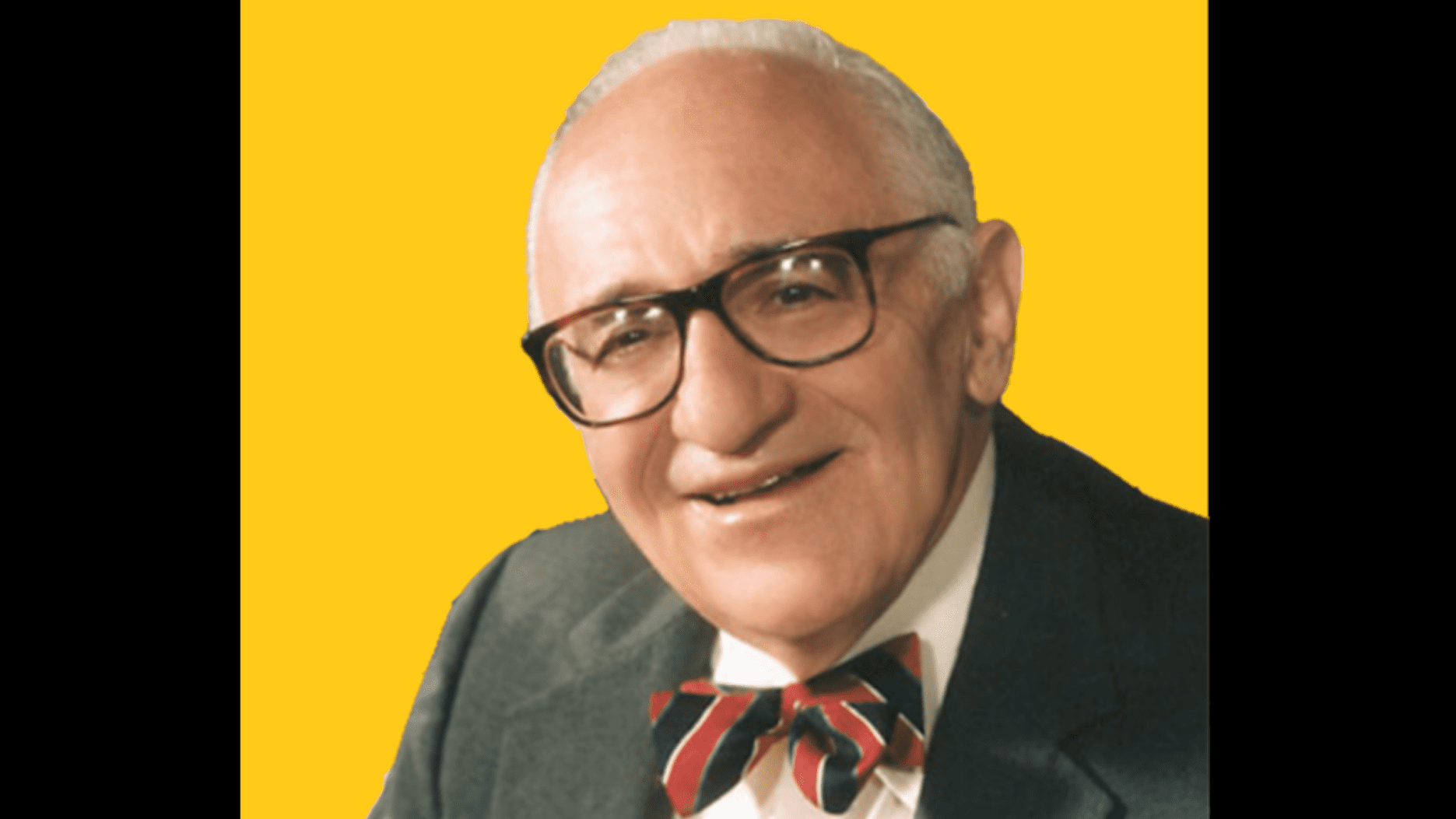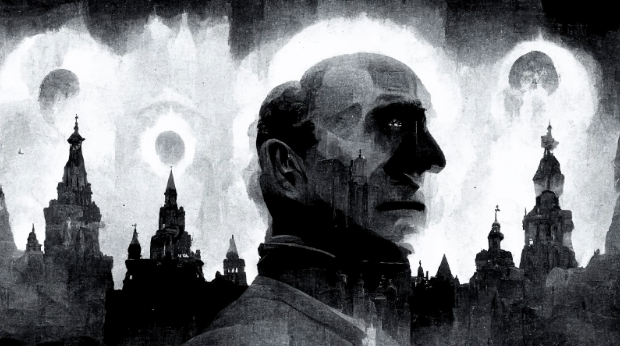In an unpublished letter from 1959 to Kenneth S. Templeton, the now-famous libertarian economist, philosopher, and historian, Murray Rothbard wrote, “I am getting more and more convinced that the war-peace question is the key to the whole libertarian business.”
And key this question remained for Rothbard. Although he worked with a number of different coalitions across the political spectrum throughout his career, Rothbard never wavered in his answer, which was always ‘peace.’
Rothbard and the American Old Right
In 1946, Rothbard joined the American Old Right. According to him, “The Old Right arose during the 1930s as a reaction against the Great Leap Forward (or Backward) into collectivism that characterized the New Deal,” and “was staunchly opposed to Big Government and the New Deal at home and abroad: that is, to both facets of the welfare-warfare state. It combated U.S. intervention in foreign affairs and foreign wars as fervently as it opposed intervention at home.”
Rothbard was influenced by individualist writers such as H.L. Mencken, Albert Jay Nock, Garet Garrett, and Frank Chodorov. Politically, he supported Robert A. Taft, who opposed intervention, the draft, and the New Deal. Taft was considered part of the “extreme right” of the Republican Party.
During his ten-year stint with the Old Right, Rothbard called on conservatives to embrace an anti-interventionist or isolationist foreign policy. In his 1954 article, “The Real Aggressor”, Rothbard, using the pseudonym Aubrey Herbert, lamented shifting conservative attitudes toward American intervention with regards to the Korean War:
“While conservatives once preferred peace and ‘isolationism,’ in our day they appeal in vague terms for liberation of foreign nations and hint that ‘We’ve been at war with Communism for years, so let’s get it over with.’”
While other Old Right conservatives would “denounce the Korean Truce and call for programs to carry war ever upward and onward,” Rothbard supported immediate peace:
“The best preventive of war is to refrain from warring — period. If we had agreed to a cease-fire when the Commies suggested it, or had pulled out of Korea altogether (even better), we would have saved thousands of American and Korean lives.”
Rothbard’s coalition with the political left
In the 1960s, Rothbard’s political coalitions shifted from the political right to the political left. He supported Black Power movement and praised Malcolm X, whom he referred to as a “great black leader”. He also praised the work of historians belonging to the New Left, such as William Appleman Williams and Gabriel Kolko.
Ahead of the 1968 presidential election, Murray Rothbard joined the newly founded Peace and Freedom Party, which consisted mostly of Maoists and Trotskyites, but with a few libertarians who were willing to make a coalition in order to oppose the Vietnam War.
Rothbard called America’s entry into the Vietnam War “a disastrous mistake.” Even when it appeared that the U.S. was losing ground, he criticized the Johnson administration for having “added a great new law to military strategy: the more you’re being defeated, the more this simply means that the enemy is becoming ‘desperate.’” The more you lose, the closer you come to “winning.” How many more such “victories” can we stand?”
Consistent opposition to conscription and interventionism
As was the case with Korea, even those who admitted that entry into the war was a mistake argued that the U.S. was ‘committed’ and had to remain in Vietnam. In response to this “curious argument” Rothbard offered the same reply as he did with regards to Korea:
“Usually, in life, if we find out that a course of action has been a mistake, we abandon that course and try something else. This is supposed to be the time-honored principle of “trial and error.” Or if a business project or investment turns out to be an unprofitable venture, we abandon it and try investing elsewhere. Only in the Vietnam war do we suddenly find that, having launched a disaster, we are stuck with it forevermore and must continue to pour in blood and treasure until eternity.”
Rothbard also lambasted conscription (as he had done during his time with the Old Right) and called it out for what it was: “quite obviously the most blatant example of slavery in American life”.
In response to the Council for a Volunteer Military (which included economist Milton Friedman) who opposed conscription on pragmatic and economic grounds, Rothbard wrote:
“The problem is not the inefficiency of a conscript army; the problem is the gross immorality — indeed, the massive criminality — of drafting young men to be kicked around for years of their lives, and then to kill or be killed against their will.”
Rothbard continued to oppose interventionism amid his coalition with the religious right
During the final years of his life, Rothbard shifted back into a coalition with the political right. He supported the 1992 presidential bid of paleoconservative Pat Buchanan, whom he praised as having “redefined the entire nature of the conservative movement” and having “created a new radical, or Hard Right, very much like the original Right” and called for a coalition between libertarians and the religious right.
In 1990 he published the article, “Mr. Bush’s War” in which he criticized President George H.W. Bush’s entry into the Gulf war after Saddam Hussein had annexed Kuwait. Rothbard pointed to the hypocrisy of the Bush administration’s rationale for entering the war:
“But, ‘[Saddam] invaded a small country.’ Yes, indeed he did. But, are we ungracious for bringing up the undoubted fact that none other than George Bush, not long ago, invaded a very small country: Panama? And to the unanimous huzzahs of the same U.S. media and politicians now denouncing Saddam?”
Rothbard considered this a “problem with the alleged principle of the U.S. cop defending all borders”. After their invasion of Panama, Rothbard asked, “Who gets to put the manacles on the U.S.?”
Though the Cold War ended with the fall of the Soviet Union in 1991, the neoconservative establishment was not content to cease its foreign policy of U.S. militarism and world-policing. Rothbard spoke out against American post-war intervention in Haiti, Somalia, and Bosnia.
He contended that the “consistent implications of [the U.S.’] persistent policy of intervention” is that the U.S. (along with the U.N. and NATO) ought to be “World Occupiers”, invading and remaining within every country in the world. This, Rothbard suggests, is “the system toward which this country has been tending.” Since Rothbard’s death in 1995, it seems that the U.S. is continuing on the same trajectory.
Across his many political coalitions, Rothbard remained steadfast in his opposition to war and to American intervention abroad. Peace was – and still is – a key to “this whole libertarian business”. Through over forty years of writing, Rothbard reminds us of this important insight.
To read more anti-war content, be sure to check out our cluster page by clicking on the button below.
This piece solely expresses the opinion of the author and not necessarily the organization as a whole. Students For Liberty is committed to facilitating a broad dialogue for liberty, representing a variety of opinions.









